Fleurs du Mal Magazine


Or see the index
![]()
William Butler Yeats
(1865-1939)
A Coat
I made my song a coat
Covered with embroideries
Out of old mythologies
From heel to throat;
But he fools caught it,
Wore it in the world’s eyes
As though they’d wrought it.
Song, let them take it,
For there’s more enterprise
In walking naked.
Who comes at need, although not now as once
A clear articulation in the air,
But inwardly, surmise companions
Beyond the fling of the dull ass’s hoof
— Ben Jonson’s phrase — and find when June is come
At Kyle-na-no under that ancient roof
A sterner conscience and a friendlier home,
I can forgive even that wrong of wrongs,
Those undreamt accidents that have made me
— Seeing that Fame has perished this long while.
Being but a part of ancient ceremony —
Notorious, till all my priceless things
Are but a post the passing dogs defile.
William Butler Yeats poetry
fleursdumal.nl magazine
More in: Archive Y-Z, Yeats, William Butler

William Butler Yeats
(1865 – 1939)
The Heart of the Woman
O what to me the little room
That was brimmed up with prayer and rest;
He bade me out into the gloom,
And my breast lies upon his breast.
O what to me my mother’s care,
The house where I was safe and warm;
The shadowy blossom of my hair
Will hide us from the bitter storm.
O hiding hair and dewy eyes,
I am no more with life and death,
My heart upon his warm heart lies,
My breath is mixed into his breath.
William Butler Yeats poetry
fleursdumal.nl magazine
More in: Archive Y-Z, Yeats, William Butler

William Butler Yeats
(1865-1939)
Two Songs Rewritten For The Tune’s Sake
I
My Paistin Finn is my sole desire,
And I am shrunken to skin and bone,
For all my heart has had for its hire
Is what I can whistle alone and alone.
Oro, oro.!
Tomorrow night I will break down the door.
What is the good of a man and he
Alone and alone, with a speckled shin?
I would that I drank with my love on my knee
Between two barrels at the inn.
Oro, oro.!
To-morrow night I will break down the door.
Alone and alone nine nights I lay
Between two bushes under the rain;
I thought to have whistled her down that
I whistled and whistled and whistled in vain.
Oro, oro!
To-morrow night I will break down the door.
II
I would that I were an old beggar
Rolling a blind pearl eye,
For he cannot see my lady
Go gallivanting by;
A dreary, dreepy beggar
Without a friend on the earth
But a thieving rascally cur —
O a beggar blind from his birth;
Or anything else but a rhymer
Without a thing in his head
But rhymes for a beautiful lady,
He rhyming alone in his bed.
William Butler Yeats poetry
fleursdumal.nl magazine
More in: Archive Y-Z, Yeats, William Butler
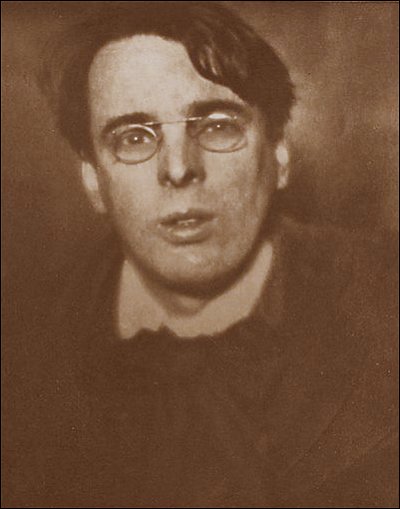
William Butler Yeats
(1865-1939)
PRESENCES
This night has been so strange that it seemed
As if the hair stood up on my head.
From going-down of the sun I have dreamed
That women laughing, or timid or wild,
In rustle of lace or silken stuff,
Climbed up my creaking stair. They had read
All I had rhymed of that monstrous thing
Returned and yet unrequited love.
They stood in the door and stood between
My great wood lectern and the fire
Till I could hear their hearts beating:
One is a harlot, and one a child
That never looked upon man with desire.
And one, it may be, a queen.
William Butler Yeats poetry
fleursdumal.nl magazine
More in: Archive Y-Z, Yeats, William Butler
.jpg)
William Butler Yeats
(1865-1939)
Why Should Not Old Men Be Mad?
Why should not old men be mad?
Some have known a likely lad
That had a sound fly-fisher’s wrist
Turn to a drunken journalist;
A girl that knew all Dante once
Live to bear children to a dunce;
A Helen of social welfare dream,
Climb on a wagonette to scream.
Some think it a matter of course that chance
Should starve good men and bad advance,
That if their neighbours figured plain,
As though upon a lighted screen,
No single story would they find
Of an unbroken happy mind,
A finish worthy of the start.
Young men know nothing of this sort,
Observant old men know it well;
And when they know what old books tell
And that no better can be had,
Know why an old man should be mad.
.jpg)
W.B. Yeats poetry
fleursdumal.nl magazine
More in: Archive Y-Z, Yeats, William Butler
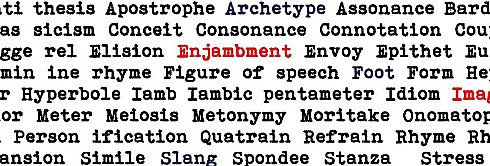
William Butler Yeats
(1865 – 1939)
The Heart of the Woman
O what to me the little room
That was brimmed up with prayer and rest;
He bade me out into the gloom,
And my breast lies upon his breast.
O what to me my mother’s care,
The house where I was safe and warm;
The shadowy blossom of my hair
Will hide us from the bitter storm.
O hiding hair and dewy eyes,
I am no more with life and death,
My heart upon his warm heart lies,
My breath is mixed into his breath.
William Butler Yeats poetry
fleursdumal.nl magazine
More in: Archive Y-Z, Yeats, William Butler

William Butler Yeats
(1865-1939)
He Mourns For The Change That Has Come
Upon Him And His Beloved,
And Longs For The End Of The World
Do you not hear me calling, white deer with no horns?
I have been changed to a hound with one red ear;
I have been in the Path of Stones and the Wood of Thorns,
For somebody hid hatred and hope and desire and fear
Under my feet that they follow you night and day.
A man with a hazel wand came without sound;
He changed me suddenly; I was looking another way;
And now my calling is but the calling of a hound;
And Time and Birth and Change are hurrying by.
I would that the Boar without bristles had come from the West
And had rooted the sun and moon and stars out of the sky
And lay in the darkness, grunting, and turning to his rest.
.jpg)
W.B. Yeats poetry
fleursdumal.nl magazine
More in: Archive Y-Z, Yeats, William Butler
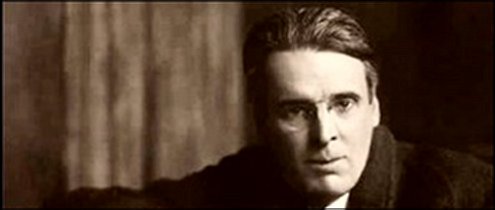
W i l l i a m B u t l e r Y e a t s
(1865-1939)
May God be praised for woman
T h r e e P o e m s
Politics
How can I, that girl standing there,
My attention fix
On Roman or on Russian
Or on Spanish politics?
Yet here’s a travelled man that knows
What he talks about,
And there’s a politician
That has read and thought,
And maybe what they say is true
Of war and war’s alarms,
But O that I were young again
And held her in my arms!
To A Young Girl
My dear, my dear, I know
More than another
What makes your heart beat so;
Not even your own mother
Can know it as I know,
Who broke my heart for her
When the wild thought,
That she denies
And has forgot,
Set all her blood astir
And glittered in her eyes.
On Woman
May God be praised for woman
That gives up all her mind,
A man may find in no man
A friendship of her kind
That covers all he has brought
As with her flesh and bone,
Nor quarrels with a thought
Because it is not her own.
Though pedantry denies,
It’s plain the Bible means
That Solomon grew wise
While talking with his queens.
Yet never could, although
They say he counted grass,
Count all the praises due
When Sheba was his lass,
When she the iron wrought, or
When from the smithy fire
It shuddered in the water:
Harshness of their desire
That made them stretch and yawn,
pleasure that comes with sleep,
Shudder that made them one.
What else He give or keep
God grant me — no, not here,
For I am not so bold
To hope a thing so dear
Now I am growing old,
But when, if the tale’s true,
The Pestle of the moon
That pounds up all anew
Brings me to birth again —
To find what once I had
And know what once I have known,
Until I am driven mad,
Sleep driven from my bed.
By tenderness and care.
pity, an aching head,
Gnashing of teeth, despair;
And all because of some one
perverse creature of chance,
And live like Solomon
That Sheba led a dance.
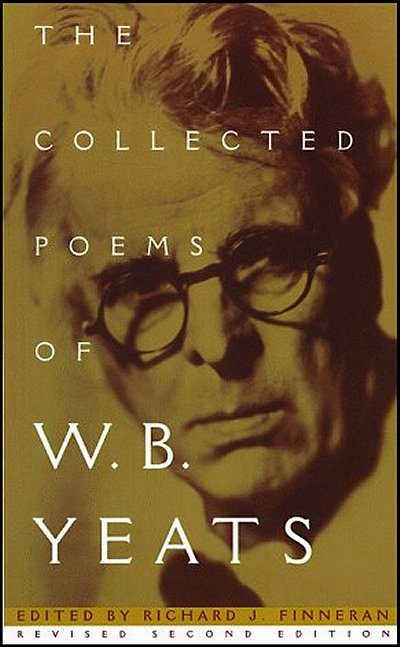
FLEURSDUMAL.NL MAGAZINE
MAGAZINE FOR ART & LITERATURE
More in: Archive Y-Z, Yeats, William Butler
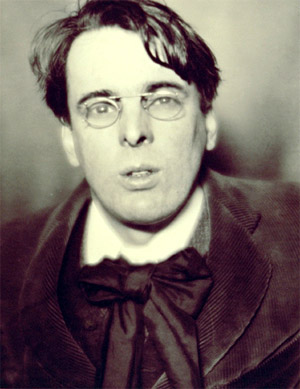
W. B. Yeats
(1865-1939)
For Anne Gregory
“Never shall a young man,
Thrown into despair
By those great honey-coloured
Ramparts at your ear,
Love you for yourself alone
And not your yellow hair.”
“But I can get a hair-dye
And set such colour there,
Brown, or black, or carrot,
That young men in despair
May love me for myself alone
And not my yellow hair.”
“I heard an old religious man
But yesternight declare
That he had found a text to prove
That only God, my dear,
Could love you for yourself alone
And not your yellow hair.”
W. B. Yeats poetry
fleursdumal.nl magazine
More in: Archive Y-Z, Yeats, William Butler
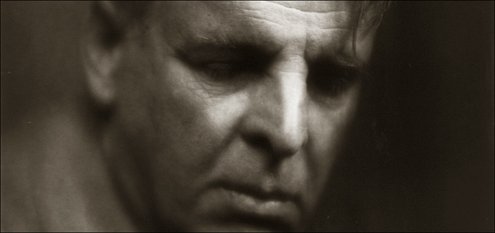
William Butler Yeats
(1865-1939)
Words For Music Perhaps
I – CRAZY JANE AND THE BISHOP
BRING me to the blasted oak
That I, midnight upon the stroke,
(All find safety in the tomb.)
May call down curses on his head
Because of my dear Jack that’s dead.
Coxcomb was the least he said:
The solid man and the coxcomb.
Nor was he Bishop when his ban
Banished Jack the Journeyman,
(All find safety in the tomb.)
Nor so much as parish priest,
Yet he, an old book in his fist,
Cried that we lived like beast and beast:
The solid man and the coxcomb.
The Bishop has a skin, God knows,
Wrinkled like the foot of a goose,
(All find safety in the tomb.)
Nor can he hide in holy black
The heron’s hunch upon his back,
But a birch-tree stood my Jack:
The solid man and the coxcomb.
Jack had my virginity,
And bids me to the oak, for he
(all find safety in the tomb.)
Wanders out into the night
And there is shelter under it,
But should that other come, I spit:
The solid man and the coxcomb.
II – CRAZY JANE REPROVED
I CARE not what the sailors say:
All those dreadful thunder-stones,
All that storm that blots the day
Can but show that Heaven yawns;
Great Europa played the fool
That changed a lover for a bull.
Fol de rol, fol de rol.
To round that shell’s elaborate whorl,
Adorning every secret track
With the delicate mother-of-pearl,
Made the joints of Heaven crack:
So never hang your heart upon
A roaring, ranting journeyman.
Fol de rol, fol de rol.
III – CRAZY JANE ON THE DAY OF JUDGMENT
‘LOVE is all
Unsatisfied
That cannot take the whole
Body and soul’;
And that is what Jane said.
‘Take the sour
If you take me
I can scoff and lour
And scold for an hour.’
‘That’s certainly the case,’ said he.
‘Naked I lay,
The grass my bed;
Naked and hidden away,
That black day’;
And that is what Jane said.
‘What can be shown?
What true love be?
All could be known or shown
If Time were but gone.’
‘That’s certainly the case,’ said he.
IV – CRAZY JANE AND JACK THE JOURNEYMAN
I KNOW, although when looks meet
I tremble to the bone,
The more I leave the door unlatched
The sooner love is gone,
For love is but a skein unwound
Between the dark and dawn.
A lonely ghost the ghost is
That to God shall come;
I — love’s skein upon the ground,
My body in the tomb —
Shall leap into the light lost
In my mother’s womb.
But were I left to lie alone
In an empty bed,
The skein so bound us ghost to ghost
When he turned his head
passing on the road that night,
Mine must walk when dead.
V – CRAZY JANE ON GOD
THAT lover of a night
Came when he would,
Went in the dawning light
Whether I would or no;
Men come, men go;
All things remain in God.
Banners choke the sky;
Men-at-arms tread;
Armoured horses neigh
In the narrow pass:
All things remain in God.
Before their eyes a house
That from childhood stood
Uninhabited, ruinous,
Suddenly lit up
From door to top:
All things remain in God.
I had wild Jack for a lover;
Though like a road
That men pass over
My body makes no moan
But sings on:
All things remain in God.
VI – CRAZY JANE TALKS WITH THE BISHOP
I MET the Bishop on the road
And much said he and I.
‘Those breasts are flat and fallen now,
Those veins must soon be dry;
Live in a heavenly mansion,
Not in some foul sty.’
‘Fair and foul are near of kin,
And fair needs foul,’ I cried.
‘My friends are gone, but that’s a truth
Nor grave nor bed denied,
Learned in bodily lowliness
And in the heart’s pride.
‘A woman can be proud and stiff
When on love intent;
But Love has pitched his mansion in
The place of excrement;
For nothing can be sole or whole
That has not been rent.’
VII – CRAZY JANE GROWN OLD LOOKS AT THE DANCERS
I FOUND that ivory image there
Dancing with her chosen youth,
But when he wound her coal-black hair
As though to strangle her, no scream
Or bodily movement did I dare,
Eyes under eyelids did so gleam;
Love is like the lion’s tooth.
When She, and though some said she played
I said that she had danced heart’s truth,
Drew a knife to strike him dead,
I could but leave him to his fate;
For no matter what is said
They had all that had their hate;
Love is like the lion’s tooth.
Did he die or did she die?
Seemed to die or died they both?
God be with the times when I
Cared not a thraneen for what chanced
So that I had the limbs to try
Such a dance as there was danced —
Love is like the lion’s tooth.
VIII – GIRL’S SONG
I WENT out alone
To sing a song or two,
My fancy on a man,
And you know who.
Another came in sight
That on a stick relied
To hold himself upright;
I sat and cried.
And that was all my song —
When everything is told,
Saw I an old man young
Or young man old?
IX – YOUNG MAN’S SONG
‘SHE will change,’ I cried.
‘Into a withered crone.’
The heart in my side,
That so still had lain,
In noble rage replied
And beat upon the bone:
‘Uplift those eyes and throw
Those glances unafraid:
She would as bravely show
Did all the fabric fade;
No withered crone I saw
Before the world was made.’
Abashed by that report,
For the heart cannot lie,
I knelt in the dirt.
And all shall bend the knee
To my offended heart
Until it pardon me.
X – HER ANXIETY
EARTH in beauty dressed
Awaits returning spring.
All true love must die,
Alter at the best
Into some lesser thing.
Prove that I lie.
Such body lovers have,
Such exacting breath,
That they touch or sigh.
Every touch they give,
Love is nearer death.
Prove that I lie.
XI – HIS CONFIDENCE
UNDYING love to buy
I wrote upon
The corners of this eye
All wrongs done.
What payment were enough
For undying love?
I broke my heart in two
So hard I struck.
What matter? for I know
That out of rock,
Out of a desolate source,
Love leaps upon its course.
XII – LOVE’S LONELINESS
OLD fathers, great-grandfathers,
Rise as kindred should.
If ever lover’s loneliness
Came where you stood,
Pray that Heaven protect us
That protect your blood.
The mountain throws a shadow,
Thin is the moon’s horn;
What did we remember
Under the ragged thorn?
Dread has followed longing,
And our hearts are torn.
XIII – HER DREAM
I DREAMED as in my bed I lay,
All night’s fathomless wisdom come,
That I had shorn my locks away
And laid them on Love’s lettered tomb:
But something bore them out of sight
In a great tumult of the air,
And after nailed upon the night
Berenice’s burning hair.
XIV – HIS BARGAIN
WHO talks of Plato’s spindle;
What set it whirling round?
Eternity may dwindle,
Time is unwound,
Dan and Jerry Lout
Change their loves about.
However they may take it,
Before the thread began
I made, and may not break it
When the last thread has run,
A bargain with that hair
And all the windings there.
XV – THREE THINGS
‘O CRUEL Death, give three things back,’
Sang a bone upon the shore;
‘A child found all a child can lack,
Whether of pleasure or of rest,
Upon the abundance of my breast’:
A bone wave-whitened and dried in the wind.
‘Three dear things that women know,’
Sang a bhone upon the shore;
‘A man if I but held him so
When my body was alive
Found all the pleasure that life gave’:
A bone wave-whitened and dried in the wind.
‘The third thing that I think of yet,’
Sang a bone upon the shore,
‘Is that morning when I met
Face to face my rightful man
And did after stretch and yawn’:
A bone wave-whitened and dried in the wind.
XVI – LULLABY
BELOVED, may your sleep be sound
That have found it where you fed.
What were all the world’s alarms
To mighty paris when he found
Sleep upon a golden bed
That first dawn in Helen’s arms?
Sleep, beloved, such a sleep
As did that wild Tristram know
When, the potion’s work being done,
Roe could run or doe could leap
Under oak and beechen bough,
Roe could leap or doe could run;
Such a sleep and sound as fell
Upon Eurotas’ grassy bank
When the holy bird, that there
Accomplished his predestined will,
From the limbs of Leda sank
But not from her protecting care.
XVII – AFTER LONG SILENCE
SPEECH after long silence; it is right,
All other lovers being estranged or dead,
Unfriendly lamplight hid under its shade,
The curtains drawn upon unfriendly night,
That we descant and yet again descant
Upon the supreme theme of Art and Song:
Bodily decrepitude is wisdom; young
We loved each other and were ignorant.
XVIII – MAD AS THE MIST AND SNOW
BOLT and bar the shutter,
For the foul winds blow:
Our minds are at their best this night,
And I seem to know
That everything outside us is
Mad as the mist and snow.
Horace there by Homer stands,
Plato stands below,
And here is Tully’s open page.
How many years ago
Were you and I unlettered lads
Mad as the mist and snow?
You ask what makes me sigh, old friend,
What makes me shudder so?
I shudder and I sigh to think
That even Cicero
And many-minded Homer were
Mad as the mist and snow.
XIX – THOSE DANCING DAYS ARE GONE
COME, let me sing into your ear;
Those dancing days are gone,
All that silk and satin gear;
Crouch upon a stone,
Wrapping that foul body up
In as foul a rag:
I carry the sun in a golden cup.
The moon in a silver bag.
Curse as you may I sing it through;
What matter if the knave
That the most could pleasure you,
The children that he gave,
Are somewhere sleeping like a top
Under a marble flag?
I carry the sun in a golden cup.
The moon in a silver bag.
I thought it out this very day.
Noon upon the clock,
A man may put pretence away
Who leans upon a stick,
May sing, and sing until he drop,
Whether to maid or hag:
I carry the sun in a golden cup,
The moon in a silver bag.
XX – ‘I AM OF IRELAND’
AM of Ireland,
And the Holy Land of Ireland,
And time runs on,’ cried she.
‘Come out of charity,
Come dance with me in Ireland.’
One man, one man alone
In that outlandish gear,
One solitary man
Of all that rambled there
Had turned his stately head.
That is a long way off,
And time runs on,’ he said,
‘And the night grows rough.’
I am of Ireland,
And the Holy Land of Ireland,
And time runs on,’ cried she.
‘Come out of charity
And dance with me in Ireland.’
The fiddlers are all thumbs,
Or the fiddle-string accursed,
The drums and the kettledrums
And the trumpets all are burst,
And the trombone,’ cried he,
‘The trumpet and trombone,’
And cocked a malicious eye,
‘But time runs on, runs on.’
I am of Ireland,
And the Holy Land of Ireland,
And time runs on,’ cried she.
‘Come out of charity
And dance with me in Ireland.’
XXI – THE DANCER AT CRUACHAN AND CRO-PATRICK
I, PROCLAIMING that there is
Among birds or beasts or men
One that is perfect or at peace.
Danced on Cruachan’s windy plain,
Upon Cro-patrick sang aloud;
All that could run or leap or swim
Whether in wood, water or cloud,
Acclaiming, proclaiming, declaiming Him.
XXII – TOM THE LUNATIC
SANG old Tom the lunatic
That sleeps under the canopy:
‘What change has put my thoughts astray
And eyes that had s-o keen a sight?
What has turned to smoking wick
Nature’s pure unchanging light?
‘Huddon and Duddon and Daniel O’Leary.
Holy Joe, the beggar-man,
Wenching, drinking, still remain
Or sing a penance on the road;
Something made these eyeballs weary
That blinked and saw them in a shroud.
‘Whatever stands in field or flood,
Bird, beast, fish or man,
Mare or stallion, cock or hen,
Stands in God’s unchanging eye
In all the vigour of its blood;
In that faith I live or die.’
XXIII – TOM AT CRUACHAN
ON Cruachan’s plain slept he
That must sing in a rhyme
What most could shake his soul:
‘The stallion Eternit
Mounted the mare of Time,
‘Gat the foal of the world.’
XXIV – OLD TOM AGAIN
THINGS out of perfection sail,
And all their swelling canvas wear,
Nor shall the self-begotten fail
Though fantastic men suppose
Building-yard and stormy shore,
Winding-sheet and swaddling — clothes.
XXV – THE DELPHIC ORACLE UPON PLOTINUS
BEHOLD that great Plotinus swim,
Buffeted by such seas;
Bland Rhadamanthus beckons him,
But the Golden Race looks dim,
Salt blood blocks his eyes.
Scattered on the level grass
Or winding through the grove
plato there and Minos pass,
There stately Pythagoras
And all the choir of Love

W.B. Yeats poetry
fleursdumal.nl magazine
More in: Archive Y-Z, Yeats, William Butler
.jpg)


William Butler Yeats
(1865-1939)
The Meditation Of The Old Fisherman
YOU waves, though you dance by my feet like children at play,
Though you glow and you glance, though you purr and you dart;
In the Junes that were warmer than these are, the waves were more gay,
When I was a boy with never a crack in my heart.
The herring are not in the tides as they were of old;
My sorrow! for many a creak gave the creel in the-cart
That carried the take to Sligo town to be sold,
When I was a boy with never a crack in my heart.
And ah, you proud maiden, you are not so fair when his oar
Is heard on the water, as they were, the proud and apart,
Who paced in the eve by the nets on the pebbly shore,
When I was a boy with never a crack in my heart.
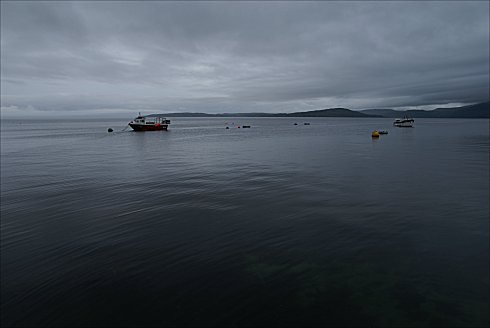
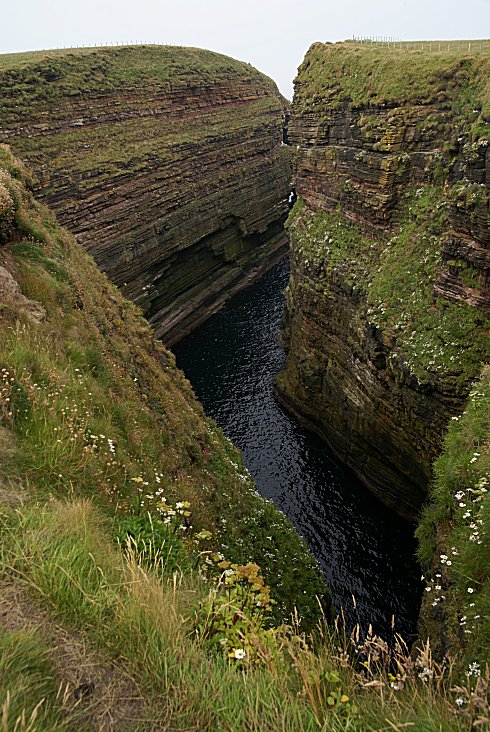
Natuurdagboek Februari 2010
Hans Hermans photos
W.B. Yeats poem
► Website Hans Hermans Fotografie
fleursdumal.nl magazine
More in: Hans Hermans Photos, Yeats, William Butler
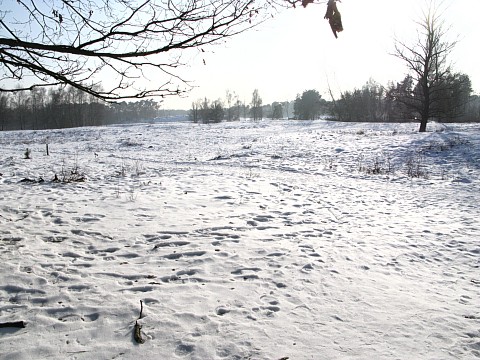
.jpg)
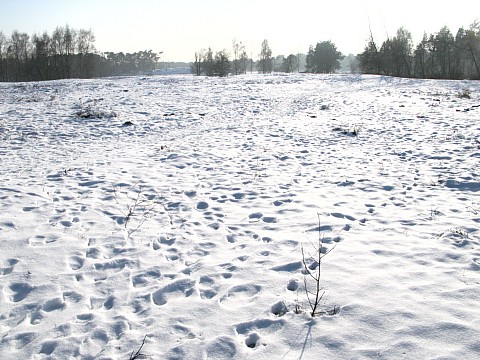
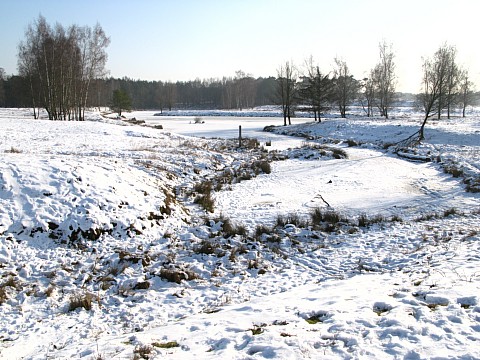
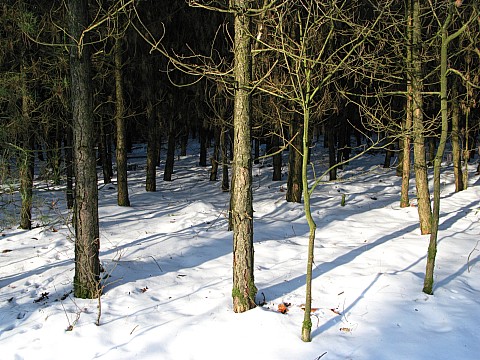
William Butler Yeats
(1865-1939)
Mad As The Mist And Snow
Bolt and bar the shutter,
For the foul winds blow:
Our minds are at their best this night,
And I seem to know
That everything outside us is
Mad as the mist and snow.
Horace there by Homer stands,
Plato stands below,
And here is Tully’s open page.
How many years ago
Were you and I unlettered lads
Mad as the mist and snow?
You ask what makes me sigh, old friend,
What makes me shudder so?
I shudder and I sigh to think
That even Cicero
And many-minded Homer were
Mad as the mist and snow.
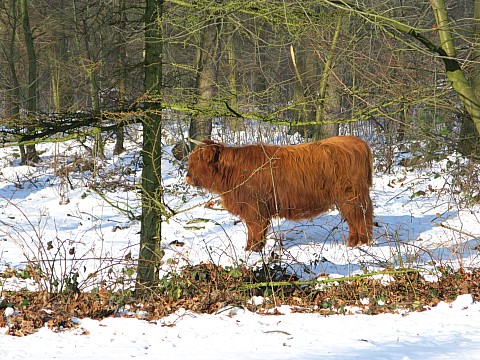

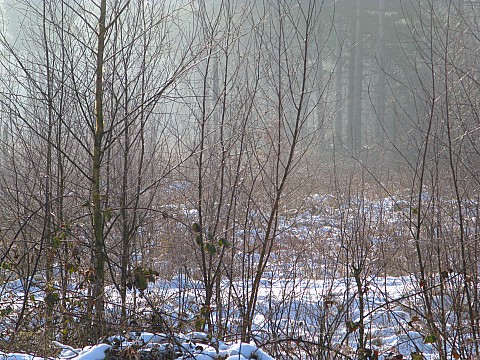
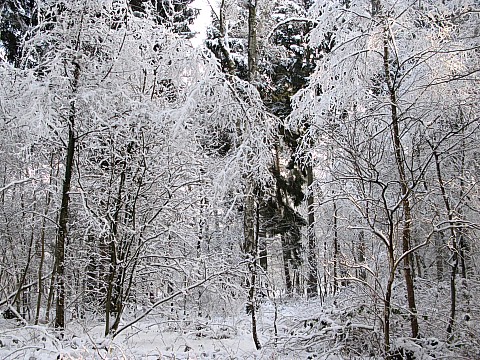


Winter (2) 2010
Photos: Ton van Kempen
Poem: W.B. Yeats
fleursdumal.nl magazine
More in: 4SEASONS#Winter, Dutch Landscapes, Ton van Kempen Photos, Yeats, William Butler
Thank you for reading Fleurs du Mal - magazine for art & literature